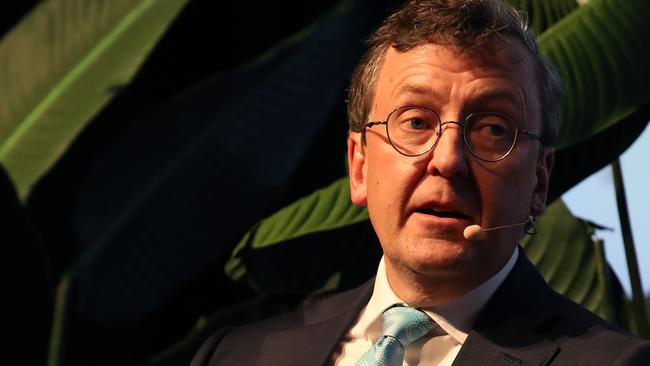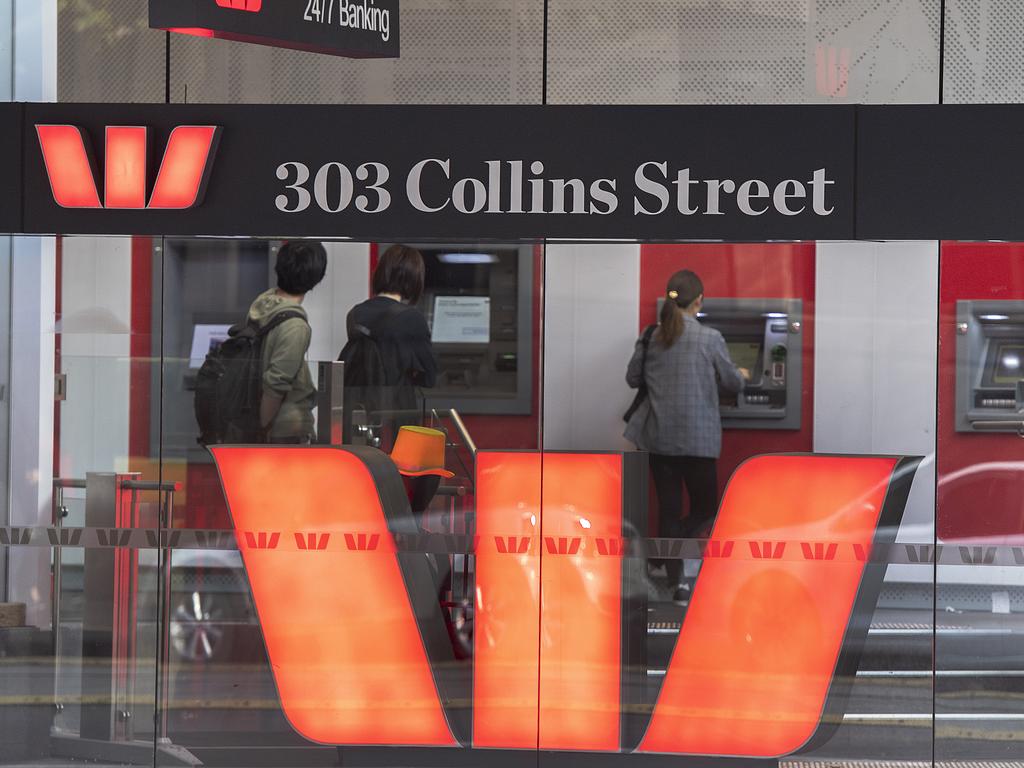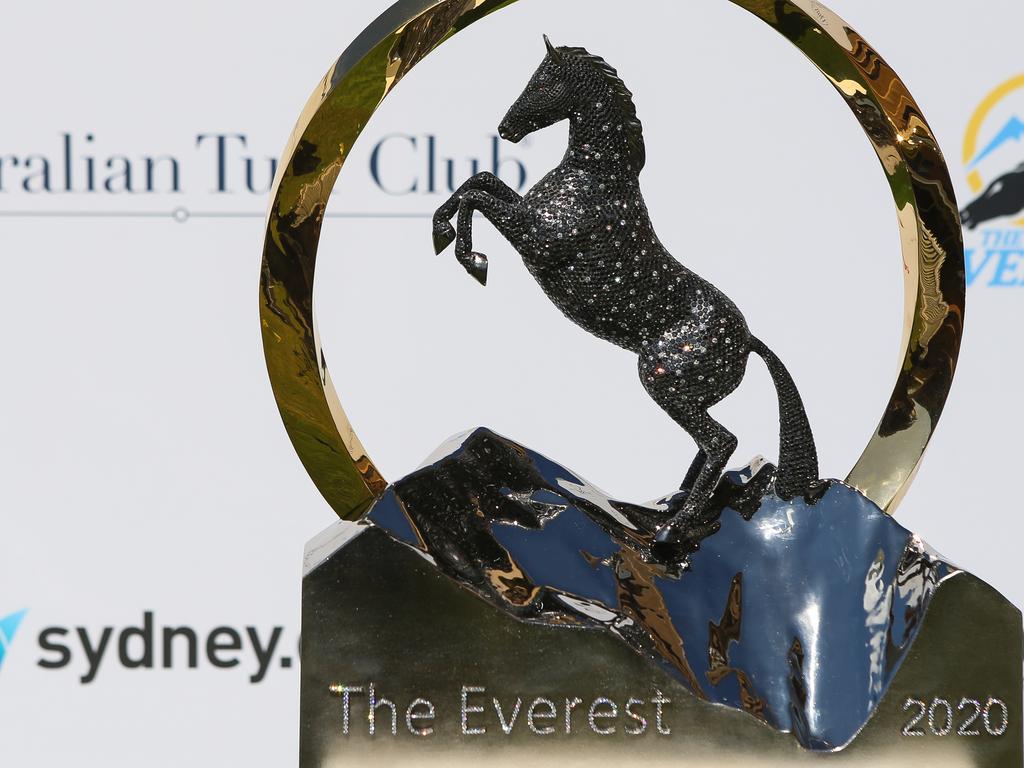Platinum chief executive Andrew Clifford warns of investor ‘mania’
One of Australia’s best-known fund managers has dialled up his warning of a retreat in shares.

One of Australia’s best-known fund managers has dialled up his warning of a retreat in shares and the need for investors to be more conscious of value as growth stocks start to wobble again.
Platinum chief executive Andrew Clifford now says there are all the signs of “a fully fledged investment mania” in the global sharemarket as retail investors pour money into growth companies already pumped up by record-low interest rates and unprecedented money creation by the central banks following the coronavirus pandemic.
It came as the popular Nasdaq 100 index of US technology companies entered its first correction of a rampant bull market since March with a fall of more than 10 per cent from a record high early this month, while the MSCI All Country World index was less than 5 per cent below an equivalent peak.
After falling 1.1 per cent to a six-week low of 3319.47 points on Friday, the S&P 500 index was 7.5 per cent below the record high of 3588.11 three weeks ago after its first three-week fall in 12 months.
The sell-off looked set to continue as S&P 500 futures fell as much as 0.7 per cent amid concern that the death of Justice Ruth Bader Ginsburg would add to the current US macroeconomic policy hiatus, as fresh outbreaks of coronavirus in the US and Europe threaten to dent economic recovery and the prospect of a closely contested US Presidential election looms as a potentially major source of uncertainty due to significant policy differences between the two candidates.
Australia’s S&P/ASX 200 sank 0.7 per cent to a 2½-month low close of 5822.6 points as banks, miners, technology and real estate stocks underperformed.
Writing in Platinum’s annual report, Clifford noted that retail investors have “enthusiastically embraced the bull market”, many with stories of great fortunes made from investing little money.
“The market has become highly thematic with labels such as ‘COVID winners’ explaining their stock price performance better than any hard-edged assessment of business positioning, intellectual property and future earnings. Innovative financing vehicles are often a sign of investor exuberance, and today we have SPACs (special purpose acquisition companies) where investors are handing money over on the basis that an exciting private business will be acquired at some point in the future.”
However, Mr Clifford warned that anyone who had been around long enough would remember the “cashbox” initial public offerings of the late 1980s and the suffering that followed.
“As high-growth stocks have become progressively more expensive, we have elected to reduce our positions in such investments, having made good returns,” he said.
“However, underlying our decision was not only the extended valuation of the growth stocks, but also the extraordinary opportunities available elsewhere.
“Additionally, our global strategies have remained cautiously positioned in response to what has become an increasingly speculative environment.”
It came after Mr Clifford told The Australian four weeks ago that a reality check on a “speculative mania” in high-flying growth stocks around the world could be just weeks away.
“We are in the midst of a pretty traditional, good old speculative mania in growth stocks,” Mr Clifford said at the time. “When it ends, you cannot know, but we do know that it will come to an end. For those who stay at the part too long, it will be unpleasant.”
Mr Clifford noted that since January 2018, the performance of Platinum’s global investment strategies including the Platinum International Fund lagged the market significantly in a market where returns were dominated by a strong US bull market with “ever more challenging valuations”.
“As we noted last year, while lower interest rates partly account for this phenomenon, investor preferences have also played a very important role,” he said.
“Faced with near zero returns on cash and risk-free assets, investors have been ‘forced’ into equities at a time when there are significant uncertainties, such as the political tensions between the US and China, and the destruction of many traditional business models by e-commerce,” he said.
“The result has been a strong preference for companies that are largely immune to economic fluctuations and other uncertainties, and it is this preference that has been a significant driver of share prices and valuations of growth stocks.”
Mr Clifford added that the COVID-19 health and economic crisis reinforced investors’ preference for safe stocks as interest rates plunged even lower in the US and many of the growth areas like e-commerce benefited from the COVID-19 lockdowns, further emphasising their investment appeal.
“However, the other story here is the enormous creation of new money in the financial system by central banks, as they have intervened in financial markets, and enormous government spending programs that have often been financed directly or indirectly by the central banks.
“It is highly likely that this substantial creation of new money, at a time when global economic output is collapsing, is responsible for the extraordinary run in the share prices of growth stocks we have experienced in the first half of 2020. To put it into perspective, the MSCI World Growth Index outperformed the MSCI World Value Index 35 per cent in the two years to June 2020 with 25 per cent occurring in the first six months of 2020.”






To join the conversation, please log in. Don't have an account? Register
Join the conversation, you are commenting as Logout